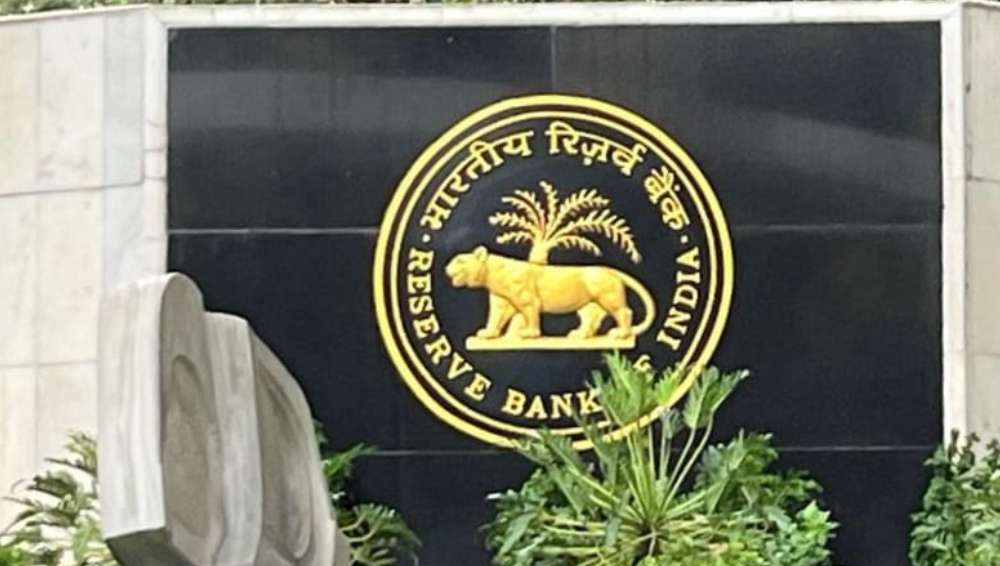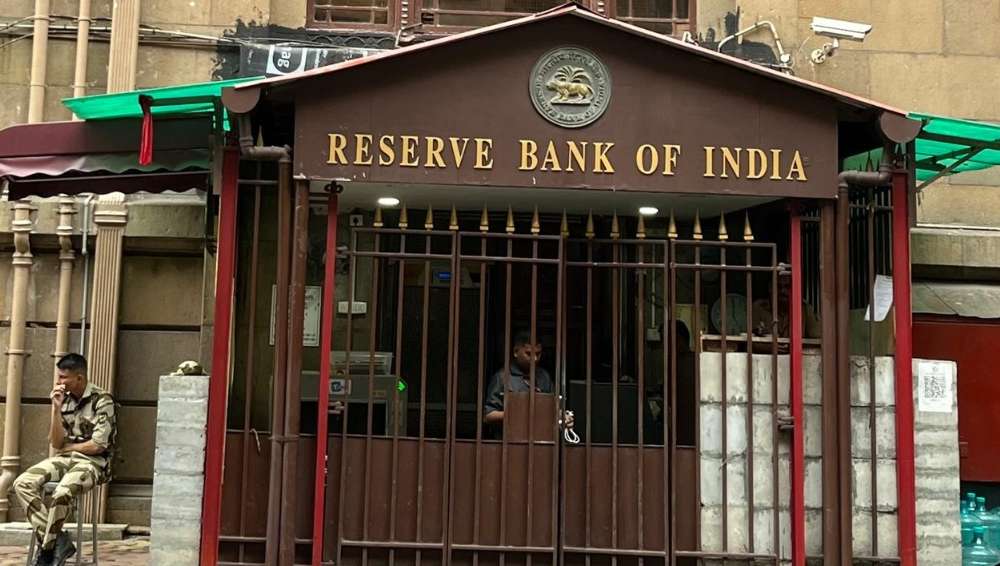

RBI amends P2P lending guidelines
16 Aug 2024, 10:27 PMAfter observing some peer-to-peer lending platforms violating the RBI's guidelines, the central bank has announced modifications to the master directions of NBFC-P2P.
Arti Singh
After observing some peer-to-peer lending platforms violating the Reserve Bank of India’s guidelines, the central bank has announced modifications to the master directions for Non-Banking Financial Company - Peer to Peer Lending (NBFC-P2P), 2017.
In its circular, the RBI noted that the master directions
had laid down “clear” guidelines regarding various aspects of functioning of
NBFC-P2P lending platforms. However, it has been observed that some of these
platforms have adopted certain practices which are violative of the said directions.
“Such practices include, among others, violation of the
prescribed funds transfer mechanism, promoting peer to peer lending as an
investment product with features like tenure linked assured minimum returns,
providing liquidity options and at times acting like deposit takers and lenders
instead of being a platform. Such violations, when observed, have been dealt
with bilaterally by the Reserve Bank of India for remediation,” the
notification mentioned.
Keeping this in mind, the regulator said has decided to
elaborate and clarify certain provisions with some modifications for proper
implementation of the directions.
The amendments in
bold:
- An NBFC-P2P shall not provide or arrange any credit enhancement or credit guarantee. “NBFC-P2P shall not assume any credit risk, either directly or indirectly, arising out of transactions carried out on its platform. In other words, entire loss of principal or interest or both, if any, in respect of funds lent by lenders to borrowers on the platform shall be borne by the lenders and adequate disclosures to this effect shall be made to lenders as part of fair practices code.
- The 2017 master directions says that an NBFC-P2P
shall not cross-sell any product except for loan specific insurance products. In
its latest circular, the RBI further clarified that NBFC-P2P shall not cross
sell any insurance product also which is in the nature of credit enhancement or
credit guarantee.
- The aggregate exposure of a lender to all borrowers at any point of time, across all P2P platforms, shall be subject to a cap of Rs 50 lakh provided that the amount lent by the lenders on P2P platforms is consistent with their net-worth. In case, the amount lent by a lender is more than Rs 10 lakh across P2P platforms, the lender shall produce a certificate to P2P platforms from a practicing Chartered Accountant certifying minimum net-worth of Rs 50 lakh.
- NBFC-P2P shall have a Board approved policy in place - setting out the rules for matching/ mapping lenders with borrowers in an equitable and non-discriminatory manner.
- No loan shall be disbursed unless the lenders and the borrowers have been matched/mapped as per the board approved policy, the individual lender(s) have approved the individual recipient(s) of the loan and all concerned participants have signed the loan contract.
- Fund transfer between the participants on the peer-to-peer lending platform shall be through escrow account mechanisms which will be operated by a bank promoted trustee. At least two escrow accounts, one for funds received from lenders and pending disbursal (i.e., Lenders’ escrow account), and the other for collections from borrowers (i.e., Borrowers’ escrow Account), shall be maintained.
“Under this prescribed funds transfer mechanism, funds from the lenders’ bank accounts shall only be transferred to the Lenders’ Escrow Account and shall only be disbursed to the specific borrower’s bank account after ensuring compliance. The borrower shall transfer the amount towards repayment of loan from his bank account to the borrowers’ escrow account, from where the funds shall only be transferred to the respective lender’s bank account. Funds from ‘Lenders’ escrow account’ shall not be used for repayment of loans and funds from ‘Borrowers’ escrow account’ shall not be used for disbursement of loans. All fund transfers shall be through and from bank accounts and cash transaction is strictly prohibited,” RBI said, while even giving a pictorial depiction of funds transfer mechanism.
.jpg)
- The regulator further specified that the funds transferred into the Lenders’ escrow account and Borrowers’ escrow account shall not remain in these escrow accounts for a period exceeding ‘T+1’ day, where ‘T’ is the date on which the funds are received in these escrow accounts. [This provision shall be effective from 90 days of the date of this circular.]
- To the lender, an NBFC-P2P shall be required to disclose details about the borrower(s) including personal identity with his/ her consent (which should be kept on record), required amount, interest rate sought and credit score as arrived by the NBFC-P2P.
- An NBFC-P2P shall be required to disclose publicly disclose
on its website: portfolio performance including share of non-performing assets
(NPAs) on a monthly basis and segregation by age. It may be noted that such
disclosures shall also include all losses borne by the lenders on principal or
interest or both.
- NBFC-P2P shall be required to obtain explicit declaration
from the lender stating that he/she has understood all the risks associated
with the lending transactions and that P2P platform does not assure return of
principal/payment of interest. The declaration shall also state that there
exists a likelihood of loss of entire principal in case of default by a
borrower. The P2P platform shall not provide any assurance or guarantee for the
recovery of loans. Further, the P2P platform shall not promote peer to peer
lending as an investment product with features like tenure linked assured
minimum returns, liquidity options, etc.
- NBFC-P2Ps which choose to outsource any of their functions shall, however, not outsource core management functions including Internal Audit, Strategic and Compliance functions, pricing of services/ fees to be charged to borrowers/ lenders and decision-making functions such as determining compliance with KYC norms. However, for NBFC-P2Ps in a group/conglomerate, these functions may be outsourced within the group subject to compliance. Further, while internal audit function itself is a management process, the internal auditors can be on contract.
New provisions added in the master directions:
- An NBFC-P2P shall not deploy lenders’ funds in any manner other than as specified in these directions.
- NBFC-P2P shall not utilize funds of a lender for replacement of any other lender(s).
- The pricing policy shall be objective and NBFC-P2P shall disclose the fees liable to be charged, ab initio, i.e., at the time of lending itself. The fees shall be a fixed amount or a fixed proportion of the principal amount involved in the lending transaction. The fees shall not be dependent upon the repayment by the borrower(s).
- The practice of matching/ mapping the participants within a closed user group, whether sourced through an outsourced agency or otherwise, is not permitted. Examples of ‘closed user group’ include borrowers/lenders sourced through an affiliate/service provider to the NBFC-P2P.
- NBFC-P2P shall explicitly and prominently mention its name (as mentioned in the Certificate of Registration) along with its brand name, if any, in all its touch points/ customer interfaces including promotional material and any communication with stakeholders/ participants.
- The platform shall display a caveat prominently on its website, mobile/web applications including any other promotional material used by it that “It is an NBFC-P2P lending platform registered with the Reserve Bank. However, Reserve Bank does not accept any responsibility for the correctness of any of the statements or representations made or opinions expressed by the NBFC-P2P and does not provide any assurance for repayment of the loans lent on it”.
All provisions come into effect immediately.
The author is Founder and Editor of The Head and Tale. She can be reached at
[email protected]
Tweets @artijourno








